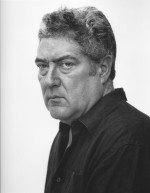Writers and Barcelona
Barcelona has been and keeps being a perfect scene for literary works, a source of inspiration for writers who were born here and a welcoming place for writers from around the world who have described it in their books.
Writer, playwright, and translator. She translated Shakespeare’s sonnets and wrote several theatre productions which premiered at the Teatre Novedades and at the Poliorama to help invigorate the theatre scene at the time. She also writes narratives, such as Diumenge de juliol, in which she evokes life in 1936 with the Rambles and horses and carts as the backdrop to her stories.
A French writer obsessed with bulls, Rome, and suicide. During his time in Barcelona, he wrote Le petite enfant de Castille, published in 1929, in which he states: “Barcelona is a city of 600,200 souls and only one public toilet”, but beyond the fifth district, he also marvelled at the city’s pragmatism, “When you get tired of Castilla and Andalusia, you can come to Barcelona to breathe. A city that is not always obstinate”.

Catalan writer, author of short stories, novels, and columnist. He is one of the most renowned figures of contemporary Catalan literature. His first novel, L’udol del griso al caire de les clavegueres, published in 1976, is set in the Rambla and the district of La Ribera. The city is the focal point and sets the scene for the majority of his stories, such as El perquè de tot plegat (1993). Barcelona Cathedral features in La força de la voluntat, while in Cacofonia the main character attempts to drive along one-way street Carrer Balmes the wrong way. The collection of stories L’illa de maians (1985) is set in front of Santa Maria del Mar, at the time when the island was still covered with water. He currently lives between the district of Poble Sec and the Eixample.
Writer, translator, and comic scriptwriter. Creator of Captain Thunder, he is one of the leading figures of literary realism next to Joaquim Carbó or Josep Maria Espinàs. His first novel Els plàtans de Barcelona had to be published in French because of the 1966 Franco censorship It is a film-like portrayal of post-war Barcelona and forms part of the trilogy along with París flach-back and “El tramvia blau”.
Diplomat and French poet. At the forefront of modernism, he was able to travel around the world. During one of his trips he captured the essence of the so-called Tragic Week in Barcelona to write his short novel La nuit catalane [Catalan Night] in Ouvert la nuit [Open all Night] published in 1922. In 1911 he landed in the city for the first time and learnt Spanish. Throughout his life he returned to Barcelona on several occasions and enjoyed going to watch the bullfights.
Journalist and writer specialized in travel books, he also wrote a couple of novels set in Barcelona: “Qui paga, mana” (1997) is centred in the Plaça Reial in post-Olympic times, while “Zanzíbar pot esperar” (2002) portrays the Barcelona of squatters, Nazis, and alternative worlds.
Writer, publisher, tranlator and teacher of Creative Writing at the University of Lleida. She is author of the novels Com si fos ahir (2014) and Des del balcó (2017), where she portraits the post-war Barcelona, especially the Gothic quarter of the city.
Writer, translator, and musician. He is a renowned children’s and young people’s author with some forty works of literature which have won him a host of awards, most significantly, the literary prizes Vaixell de Vapor (1994), Cavall Fort (1999), and Columna Jove (2002). Since the beginning of the century, he has also begun to write novels for adults which have been warmly welcomed and won him literary awards. He sets all his work in different places around the world, while those which do not make reference to any location in particular, La desgràcia de la senyora Potato, Després d’en Marcel, Nou dits or La geografia de les veus, reflect on the identity of Barcelona without making mention of it. He is the legendary translator of the Geronimo Stilton saga and the Diary of a Wimpy Kid collection.
Politician and writer. He was an academic of Catalan literature and an educational reformer alongside Rosa Sensat. He was a promoter of the Chronicles of Muntaner and also a cultural activist in exile. He held the literary competition Jocs Florals in cities such as New York and Mexico DF. He was president of the Barcelona Ateneu where he gave the opening speech for the academic year 1932-1933 entitled “Barcelona Mythology”.
Journalist, translator and writer. He made his début in 2012 with El talent, which is about the publishing world in a world of fantasy based on Crocodile Publishers, which may represent one of the publishing houses in Barcelona. He contributes to several magazines and newspapers in which he frequently focuses on the city, such as Puja a casa in which the city is observed from a caustic humorous slant.



